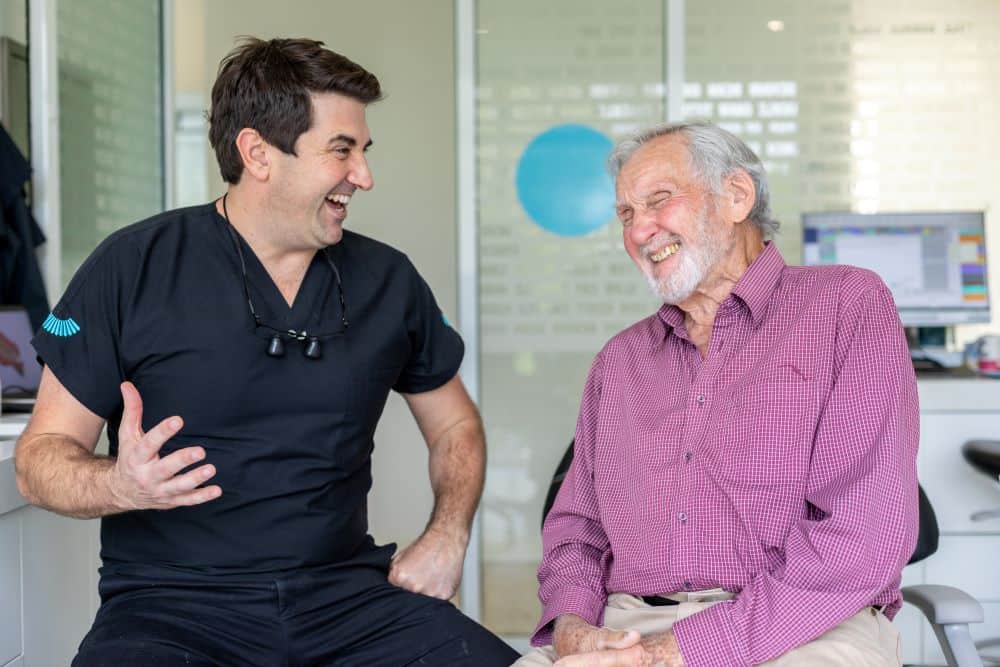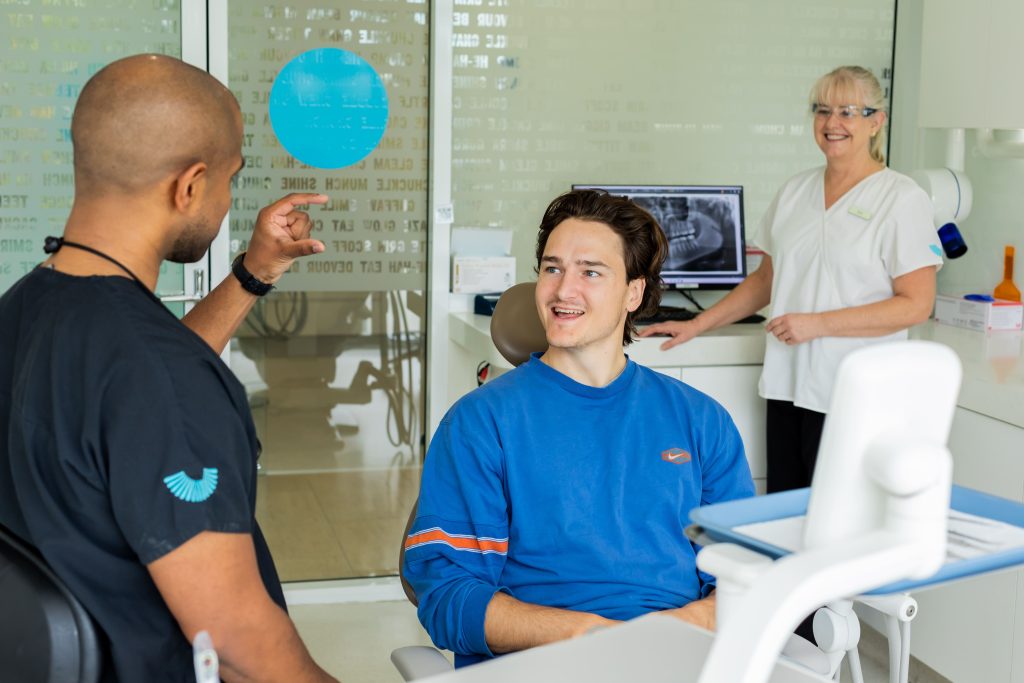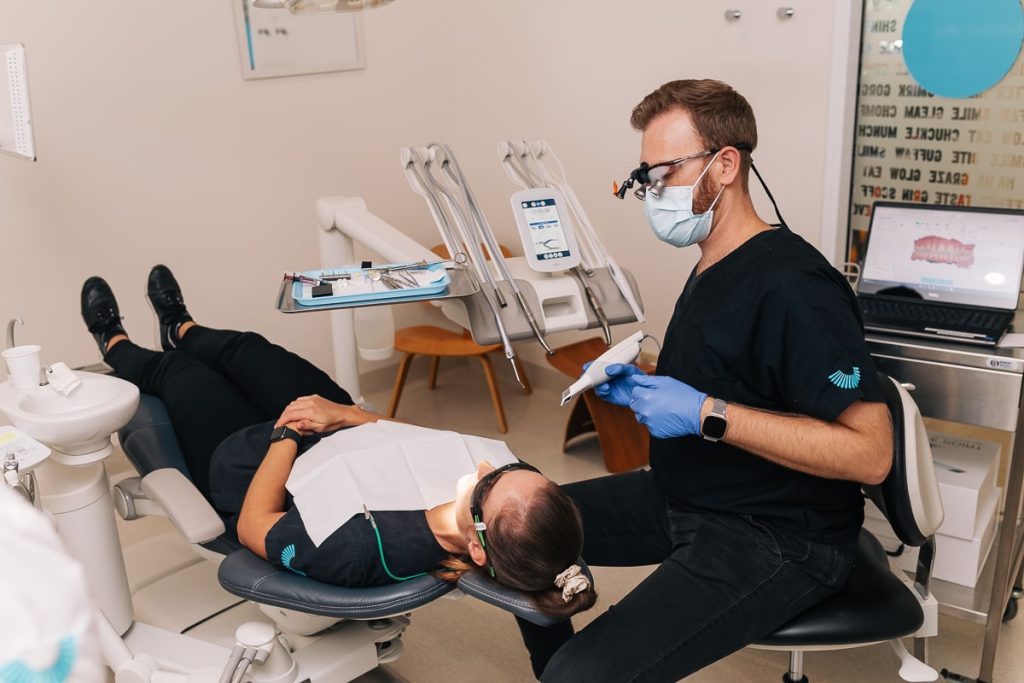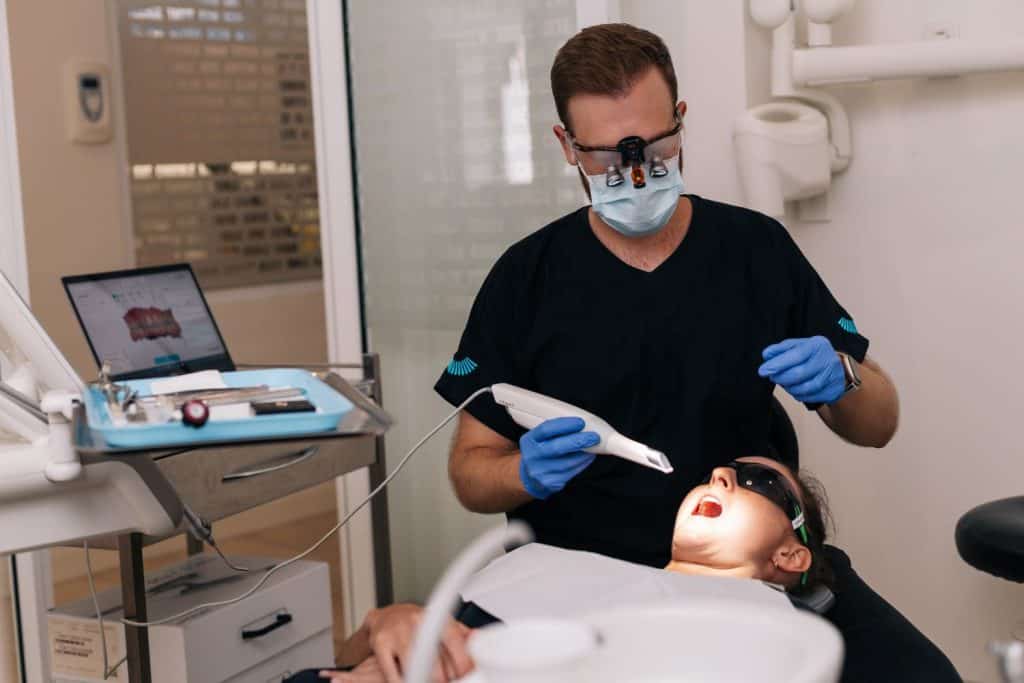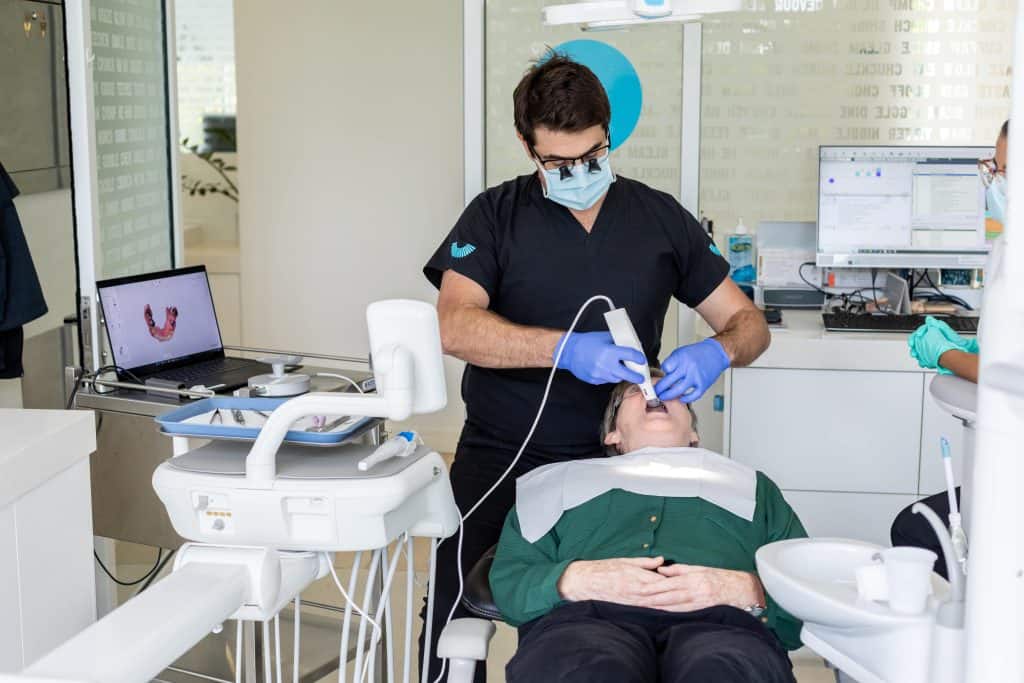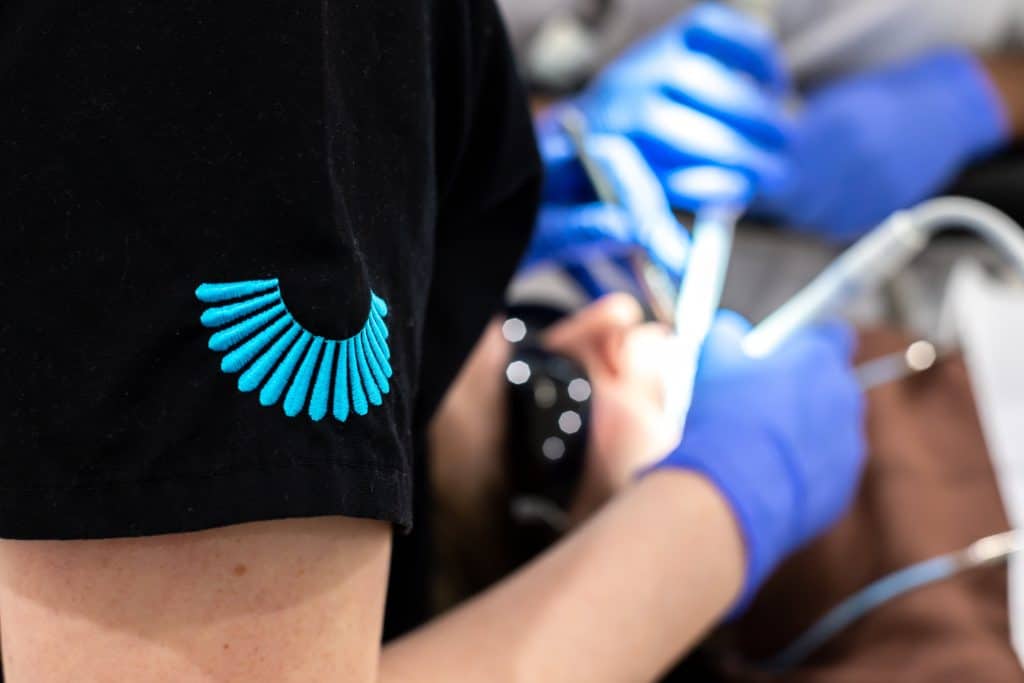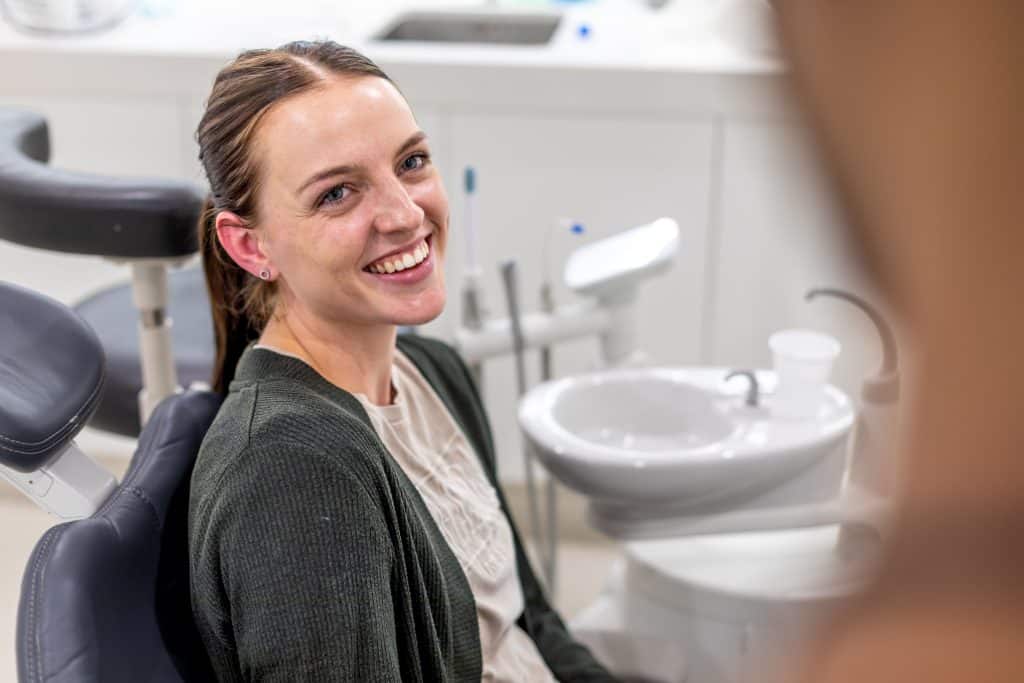Wisdom teeth are the last of our teeth to emerge and usually appear around in the late teens or early twenties (the age of wisdom!) and, for some, they are not a pleasant surprise, bringing with them toothache, pain and discomfort.
They are located in your upper and lower third molars; they appear at the back of your mouth, two in your upper gum and two at the bottom.Note that not everyone has wisdom teeth and that they do not necessarily pierce through the gum, which means that they may not be visible by simply looking in a mirror.
They do not serve a specific purpose in our mouth, which is why a lot of people choose to have them removed, some as a preventive measure, others due to pain or inflammation.
Wisdom teeth do not always need to be removed. However, due to lack of space in the mouth they sometimes become fully or partially impacted, grow at an angle inside your jawbone and are not able to fully push through your gums or, when they do emerge, can take an abnormal position in your mouth.
This can cause pressure on adjacent teeth, cause them to move in an uncomfortable position and inflict damage upon them, due to your mouth being overcrowded. It can sometimes also cause pain and/or infection.
Infection and inflammation of the gums caused by a partially erupted and impacted wisdom tooth is called “pericoronitis”. You will usually see the apparition of a flap of skin over the partially erupted tooth, which can hold food debris and bacteria between the tooth and the skin, thus causing inflammation, an abscess and infection.In that case, your dentist will clean the area, treat the infection and will be able to advise if your wisdom tooth is likely to push through without any issue or if wisdom tooth removal should be considered.
Note that even if your wisdom teeth break through your gums without any pain or complications, due to the simple fact that they are located completely at the back of your mouth behind your second molars and therefore not as easily accessible for brushing and flossing, they may be more susceptible to decay and cavities.
If you do decide to keep your wisdom teeth, you will need to make sure that you brush, floss and see your dentist regularly for checkups.
If you are experiencing jaw pain, toothache, pressure in your jawline, bleeding or inflamed gums, bad breath or headaches, you should consult your dentist right away to determine if wisdom teeth eruption is the cause.
By looking at your X-Rays, a dentist will be able to determine if you have enough space in your mouth for additional teeth, if they are positioned correctly or if they are at risk of being impacted.
This is unique to each patient but common consequences of not having your wisdom teeth removed or waiting too long are:
- Inflammation and infection when food and bacteria get lodged between teeth or under the gum, causing significant pain and bad breath
- Damage to neighboring teeth and gums, causing teeth decay and bone loss
- Cosmetic damage as wisdom teeth take up a lot of space in the mouth, causing pressure and other teeth to move and to pivot, which could create a need for orthodontic treatment
- Formation of cysts and tumors, in extreme cases
It is generally easier and less painful to have your wisdom teeth removed in your early twenties, before the roots and bones are fully developed. This means a simpler surgery and thus a shorter recovery period.
However, some people never experience any pain or discomfort related to their wisdom teeth and can safely decide to keep them; your dentist will be able to advise on the best course of action following examination of your X-Rays.
Absolutely. Our team of qualified dentists at St Lucia Dental has the required experience and qualifications to proceed with most wisdom teeth extractions.
St Lucia Dental also uses state-of-the-art equipment and anaesthetic techniques – our experienced dentists take a highly sensitive approach to wisdom tooth extraction, to minimise discomfort, swelling and concern.
Pain is very manageable and minimal, especially if you are proactive in monitoring the emergence of your wisdom teeth and proceed with an extraction at the right time.
During the surgery, you will be under local anesthetic or IV sedation and will not be able to feel any pain, except a bit of pressure at the back of your mouth from our dentist completing the procedure.
As a general rule, the longer you wait, the more painful it is, as the tooth will be firmly rooted in your mouth and the bones surrounding the tooth fully developed, which will mean a more complex and invasive surgery.
Ultimately that decision is up to you and can be discussed with your dentist; however, this might be a wise decision as it will avoid you having to come in and see your dentist on four different occasions, as well as having to take time off school or work to recover.
You will not feel more pain during the actual surgery, it will simply take a bit longer than if you were to get only one tooth extracted.
You should plan to take a few days off work and make sure that someone is available to pick you up and drive you home following wisdom teeth removal.
As for the procedure itself, our experienced dentist and team members will start by reviewing the previously taken X-Rays, so that we can pinpoint the exact position of your third molars.
We will then give you an injection of local anesthetic to numb the areas of your mouth surrounding your wisdom teeth or start IV sedation if you would like that option to make the surgery as pain-free as possible; depending on your choice of local anesthetic or IV sedation you may or may not be able to feel some pressure during the process but will not experience any pain.
Our dentist will then perform an incision in your gum to expose the wisdom tooth and surrounding bone area. Depending on your tooth, we may decide to proceed by breaking it into smaller pieces to make the extraction easier. Once the tooth has been removed, the area will be cleaned of any leftover debris to prevent infection and the wound will be closed using stitches.
Gauze will then be placed on your gum in order to stop the bleeding and encourage the formation of a blood clot, which is essential for proper healing.
You will need to rest up after your surgery and keep your activities to a minimum for the 2-3 days thereafter.
Over the next 24 hours you may experience some bleeding, which should easily be stopped by gauze and, in the 72 hours to follow, some swelling and sometimes bruising on your cheeks.
Rest assured, this discomfort is temporary and you will be back to normal in just a few days.
If possible, we recommend that you take a full week off school or work to recover. Indeed, inflammation will be at its worst 2 or 3 days after surgery, so it is best not to plan any important meeting or event in the following days.
If you do have to go back to school or to work after 48 hours, you can take over the counter painkillers to help with the pain and swelling, if any; your dentist will specify which medicine is safe following surgery.
Your dentist will give you detailed instructions in order to ensure that your mouth heals properly following your surgery. However, here are some general tips and tricks that work for most of our patients:
Do not spit or rinse your mouth for a full 24 hours after surgery, after that gargle frequently with salted lukewarm water to promote healing and cicatrisation.
Do not brush your teeth immediately after surgery and be very gentle when you do the next day, avoiding the affected area
Sleep with your head elevated.
Regularly apply ice to your cheeks in order to reduce swellingDo not eat for a few hours after surgery and, when you do, try to avoid hot meals and liquids, opting for soft foods such as smoothies, cold soups, mashed potatoes, yogurt or ice creamAvoid drinking with a straw, as this creates suction and could cause bleedingTake time to rest and avoid any strenuous physical activity for a few days in order to avoid bleeding and inflammation
We recommend avoiding smoking or drinking alcohol for at least 3 days following your tooth extraction, as this could prevent a blood clot from forming, thus causing unnecessary bleeding and slowing down the healing process.
No, once extracted wisdom teeth cannot grow back. However, some patients have more than the standard four wisdom teeth, which is why we are often asked this question. We will usually be able to see these on X-Rays and will be able to advise if these extra teeth should be extracted or if we think that you have enough space to safely accommodate them in your mouth.
The cost of wisdom teeth removal depends on your insurance coverage, if any; St Lucia Dental accepts all insurance providers and is competitive on price.


